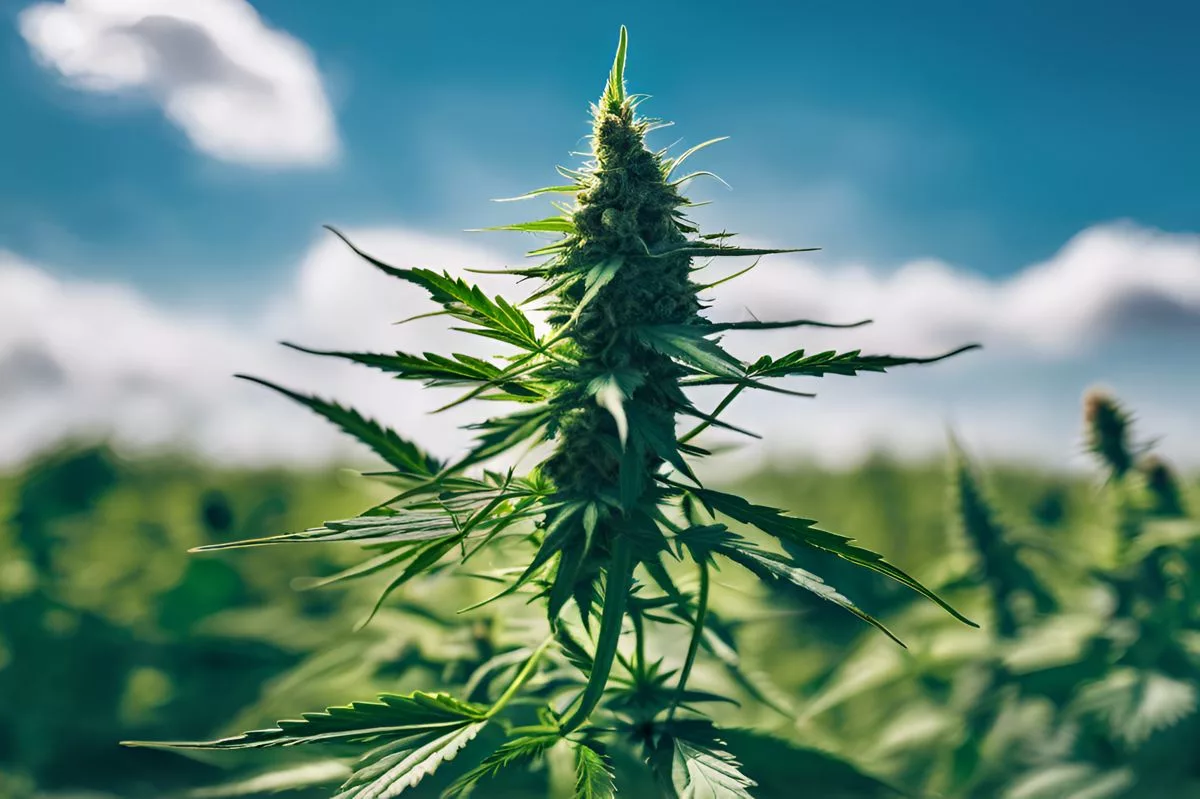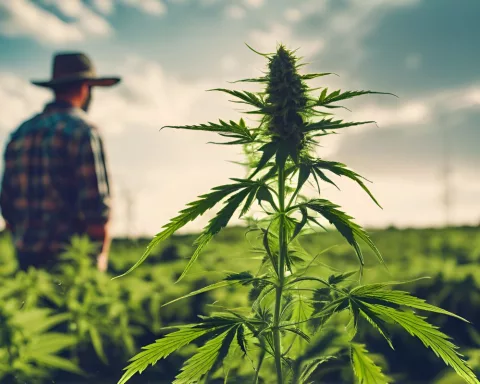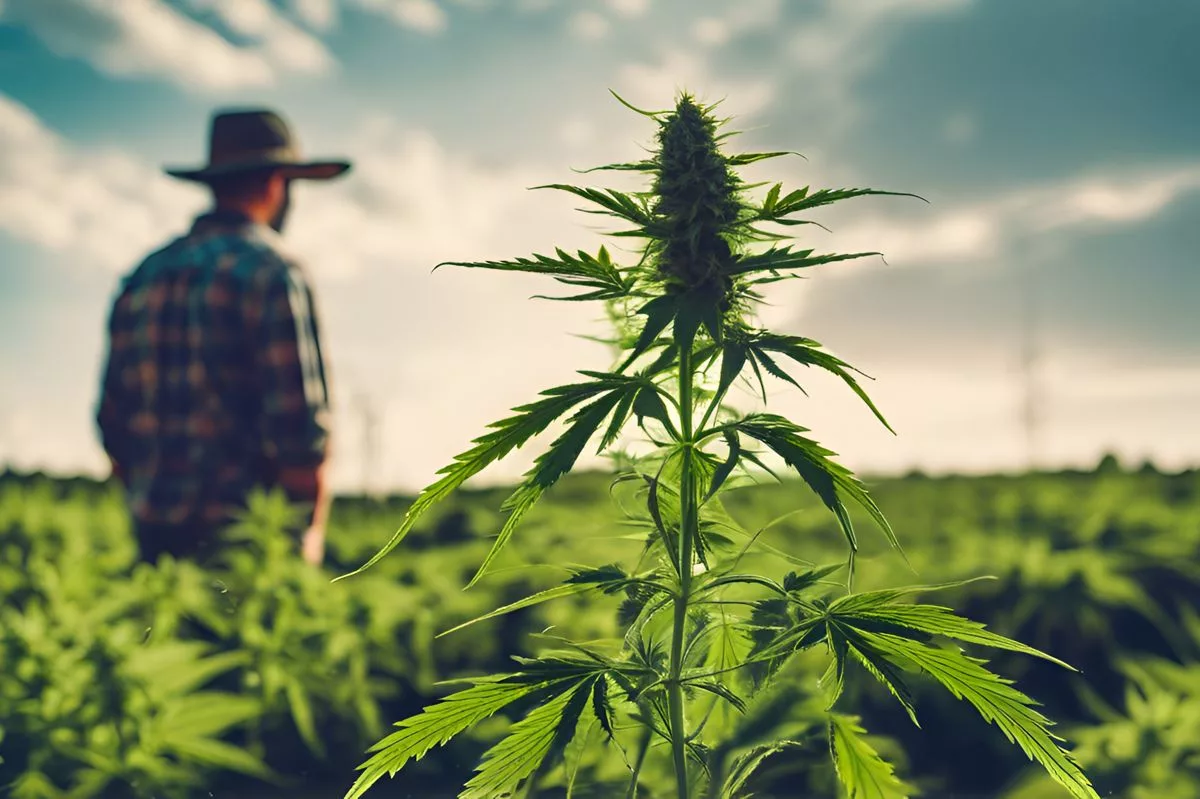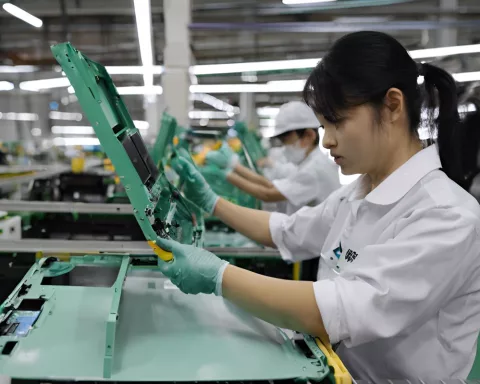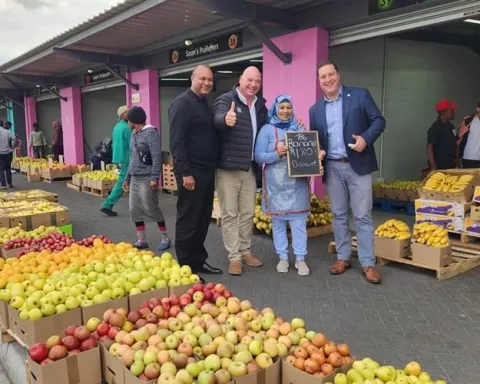The Eastern Cape province in South Africa has launched a groundbreaking strategy for the commercialization of cannabis, aimed at diversifying the economy and creating employment opportunities. The strategy involves controlling the entire production cycle from planting to packaging, and has already helped over 120 cannabis farmers obtain hemp permits. The investment in infrastructure is intended to benefit the province’s youth and women, with the aim of promoting inclusive growth.
Eastern Cape has established a groundbreaking strategy for cannabis commercialization, laying the groundwork for legislative reform and establishing a competent workforce. By controlling the entire production cycle, the province aims to diversify its economy and supplement the manufacturing sector, generating employment opportunities and aiding SMMEs. The investment in infrastructure is aimed to benefit the province’s youth and women, promising untapped economic prospects and inclusive growth.
The Dawn of Change
As the Freedom Day festivities drew to a close, a wave of anticipation filled the air in Gqeberha, Coega SEZ. The Eastern Cape’s MEC for Rural Development and Agrarian Reform, Ms. Nonkqubela Pieters, found herself surrounded by an array of distinguished government officials, influential business figures, local agriculturists, and media personnel. The atmosphere brimmed with the potential for transformation and the suspense of the unfamiliar. This day, marked by the sentiment of three decades of democracy, was destined for a revelation that could significantly alter the province’s economic fabric.
Images of President Ramaphosa jubilantly performing a dance with the Lady Smith Black Mambazo members, featured in the weekend newspapers, captured the nation’s communal exuberance. Echoes of liberty reverberated throughout South Africa, reaching the farthest corners, even the United Nations Headquarters situated in New York. Pieters expressed her belief that such a commemoration of liberty and democracy deserved a contemplative celebration, retrospection, and a forward-looking perspective.
As the celebratory chorus resonated, Pieters unveiled the primary motivation behind the gathering – a landmark financial infusion intended to expedite service delivery throughout the province and the nation. This crucial investment, a culmination of the cooperative endeavors of the Premier and the current administration, established the groundwork for the commercialization of cannabis, an industry thus far unexplored.
Charting New Territory
The Eastern Cape Cannabis Strategy, sanctioned by the Province, is an innovative blueprint devised to instigate legislative reform and facilitate the commercialization of cannabis. The strategy lays the groundwork for cultivating a competent workforce, nurturing entrepreneurial concepts, stimulating innovation, and advancing research and development.
By positioning itself as a dominant force in cannabis production, the province aims to control the entire production cycle, from planting the seeds to packaging the final products, all within Eastern Cape’s boundaries. Pieters highlighted the potential of this emerging sector by discussing the assistance offered to more than 120 cannabis farmers in obtaining hemp permits. The provincial administration trained 126 cannabis cultivators and 20 agricultural advisors through the Eastern Cape Rural Development Agency (ECRDA), demonstrating its dedication to this burgeoning industry.
In an effort to further optimize the economic returns of cannabis farming, procurement of 6 tonnes of hemp seeds, 1,000 litres of herbicides, and 1.3 tonnes of fertilisers, along with fencing material, is in progress. These resources will be allocated among the farmers, equipping them to plant hemp and reap its economic rewards.
Economic and Social Implications
Pieters emphasized the importance of diversifying the province’s economy, supplementing the manufacturing sector that has played a crucial role in generating employment opportunities and aiding Small, Medium and Micro-sized Enterprises (SMMEs). Viewing agriculture as the province’s economic dynamo, the cannabis strategy aims to leverage the collective strength of investors, financiers, entrepreneurs, and the government to promote a comprehensive economy.
True to its definition, an inclusive economy must proliferate to create opportunities for everyone. To realize this vision, Pieters stressed the importance of upgrading industrial capacity to meet the demands of both local and international markets. The investment in infrastructure, intended to drive economic transition and inclusive growth, is especially aimed to benefit the province’s youth and women.
Expressing her gratitude for Premier Mabuyane’s forward-thinking leadership, Pieters praised his guidance in steering the province towards this milestone initiative. From the onset of the 6th administration, Mabuyane had recognized the potential of the cannabis sector, and today, the rewards of this foresight are ripe for the picking.
In reference to Nelson Mandela’s speech at his farewell banquet in 1999, Pieters concluded with the belief that the African National Congress (ANC) possesses the capability to overcome any forthcoming challenges. She conveyed her confidence that the South African residents would continue to elect the ANC and uphold the achievements of democracy and freedom.
As the event drew to a close, Pieters restated the gathering’s purpose: for the Premier to disclose the cannabis investor, marking a new chapter of growth and prosperity for Eastern Cape and its residents. This significant event, in essence, signified the commencement of Eastern Cape’s Green Revolution, a leap towards cannabis commercialization, promising untapped economic prospects and inclusive growth.
1. What is the Eastern Cape’s strategy for the commercialization of cannabis?
The Eastern Cape’s strategy for the commercialization of cannabis involves controlling the entire production cycle from planting to packaging, aimed at diversifying the economy and creating employment opportunities. The province has already helped over 120 cannabis farmers obtain hemp permits.
2. How is the Eastern Cape investing in infrastructure to benefit the province’s youth and women?
The investment in infrastructure is intended to benefit the province’s youth and women, with the aim of promoting inclusive growth. The province views agriculture as the economic dynamo, and the cannabis strategy aims to leverage the collective strength of investors, financiers, entrepreneurs, and the government to promote a comprehensive economy.
3. How is the Eastern Cape promoting inclusive growth through the commercialization of cannabis?
The investment in infrastructure, intended to drive economic transition and inclusive growth, is especially aimed to benefit the province’s youth and women. By positioning itself as a dominant force in cannabis production, the province aims to diversify its economy and supplement the manufacturing sector, generating employment opportunities and aiding SMMEs.
4. How does the Eastern Cape plan to optimize the economic returns of cannabis farming?
In an effort to further optimize the economic returns of cannabis farming, procurement of 6 tonnes of hemp seeds, 1,000 litres of herbicides, and 1.3 tonnes of fertilisers, along with fencing material, is in progress. These resources will be allocated among the farmers, equipping them to plant hemp and reap its economic rewards.
5. What are the economic and social implications of the Eastern Cape’s cannabis strategy?
The Eastern Cape’s cannabis strategy aims to supplement the manufacturing sector that has played a crucial role in generating employment opportunities and aiding Small, Medium and Micro-sized Enterprises (SMMEs). The investment in infrastructure is intended to drive economic transition and inclusive growth, especially aimed to benefit the province’s youth and women.
6. What is the significance of the Eastern Cape’s Green Revolution?
The Eastern Cape’s Green Revolution signifies the commencement of cannabis commercialization, promising untapped economic prospects and inclusive growth. The strategy lays the groundwork for cultivating a competent workforce, nurturing entrepreneurial concepts, stimulating innovation, and advancing research and development. By controlling the entire production cycle, the province aims to diversify its economy and supplement the manufacturing sector, generating employment opportunities and aiding SMMEs.

